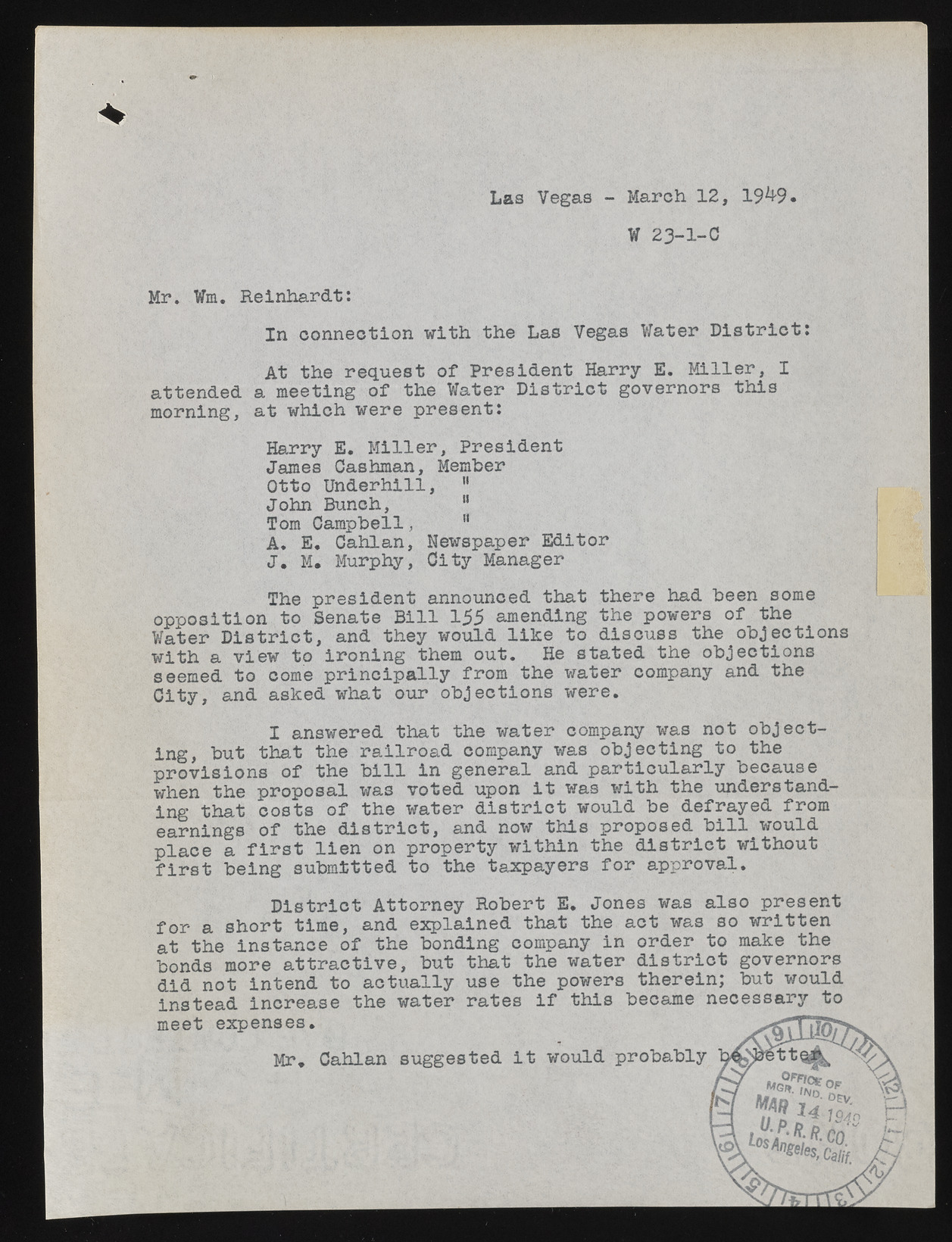Copyright & Fair-use Agreement
UNLV Special Collections provides copies of materials to facilitate private study, scholarship, or research. Material not in the public domain may be used according to fair use of copyrighted materials as defined by copyright law. Please cite us.
Please note that UNLV may not own the copyright to these materials and cannot provide permission to publish or distribute materials when UNLV is not the copyright holder. The user is solely responsible for determining the copyright status of materials and obtaining permission to use material from the copyright holder and for determining whether any permissions relating to any other rights are necessary for the intended use, and for obtaining all required permissions beyond that allowed by fair use.
Read more about our reproduction and use policy.
I agree.Information
Digital ID
Permalink
Details
More Info
Rights
Digital Provenance
Publisher
Transcription
Las Vegas - March 12, 19^9• w 23-1-c Mr. Wm. Reinhardt: In connection with the Las Vegas Water District: At the request of President Harry E. Miller, I attended a meeting of the Water District governors this morning, at which were present: Harry E. Miller, President James Cashman, Member Otto Underhill, H John Bunch, " Tom Campbell> " A. E. Cahlan, Newspaper Editor J. M. Murphy, City Manager The president announced that there had been some opposition to Senate Bill 155 amending the powers of the Water District, and they would like to discuss the objections with a view to ironing them out. He stated the objections seemed to come principally from the water company and the City, and asked what our objections were. I answered that the water company was not objecting, but that the railroad company was objecting to the provisions of the bill in general and particularly because when the proposal was voted upon it was with the understanding that costs of the water district would be defrayed from earnings of the district, and now this proposed bill would place a first lien on property within the district without first being submitted to the taxpayers for approval. District Attorney Robert E. Jones was also present for a short time, and explained that the act was so written at the instance of the bonding company in order to make the bonds more attractive, but that the water district governors did not intend to actually use the powers therein; but would instead increase the water rates if this became necessary to meet expenses. Mr, Cahlan suggested it would probably

